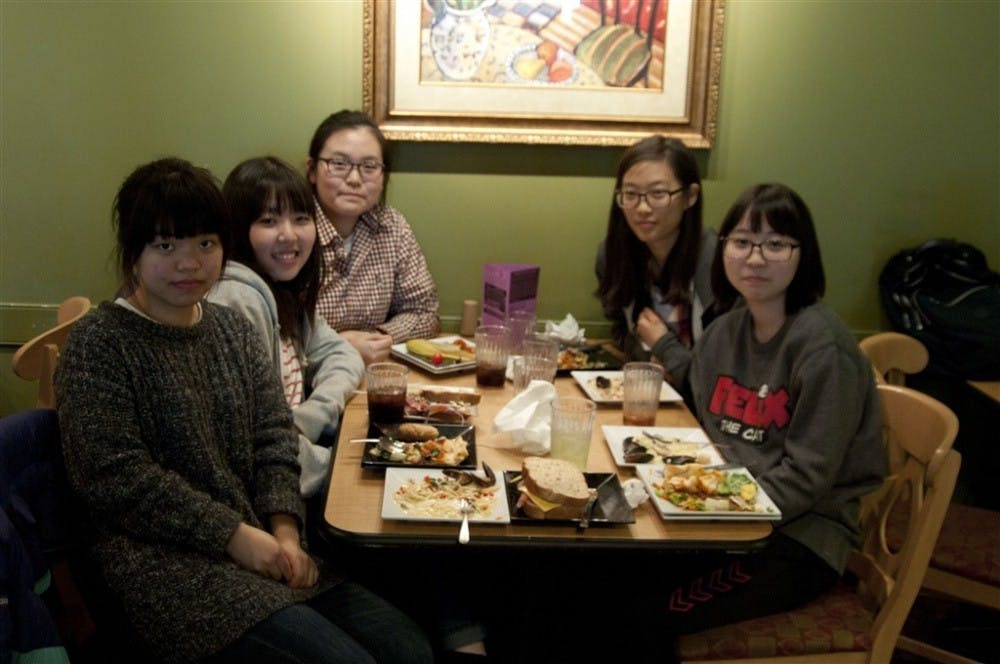The first thing they noticed was the friendliness.
Stepping off a plane from Gwacheon, South Korea, the welcome the 16 students received from Americans stood out when they first arrived in the United States.
The students are participating in a two and a half week visit through the Burlington-Alamance Sister Cities Program. The students are currently in second grade, the equivalent to 11th grade in the United States. While in the states, the 12 girls and four boys are living in pairs with host families and taking classes at Burlington Christian Academy. Their visit also includes trips to Washington, D.C. and New York City.
Dianne Ford, coordinator of serials and government documents at Elon University's library, helped coordinate the students' trip to Elon, which included lunch on campus and tours of the library, Kernodle Center and Schools of Business and Communication.
Sauyon Park said she gained her spot on the trip by completing tests involving reading, speaking and listening to English. All South Korean students are encouraged to learn English, many starting at a young age. An ESL teacher from Alamance Community College is currently leading the students in English classes during their time at the academy.
"It's really important to be good at English in Korea, so exposure to the culture is the best way to learn the language," she said.
Ford is no stranger to picking up a second language. After arriving at Elon 10 years ago, she starting learning Spanish at El Centro and looked for ways to put it into practice, leading to involvement tutoring at local elementary schools and eventually the Sister Cities Program. At the first meeting she attended, she was invited on a trip to Soledad, Mexico, the program's first Sister City.
"We tutor English while we're there with students who are studying (it), but have never spoken it with a native speaker so they are intimidated by the idea," Ford said. "We've all been learning Spanish but haven't had the chance to practice. We all kind of jump in there and start speaking each other's language."
To assist with the students arriving from South Korea, Ford enlisted the help of Byung Lee, associate professor of communication, and freshman Jin Bo Choi, both from South Korea.
"We're trying to provide international opportunities for people on our campus and trying to show us off a bit too," Ford said. "Because we're recruiting international students here, we have a lot of different people talking to them."
The students said they are interested in attending American college but know it is very expensive.
Now a little more than a week into their stay, the students have already picked up on the subtle differences in American culture.
The customary bow when greeting a peer is now replaced with handshakes and hugs where appropriate. They have also noticed the American tendency to wear shoes in the home, a habit absent from Korean society.
But there are also welcome similarities, such as American television shows including "Gossip Girl," "How I Met Your Mother" and "The Simpsons."
Between the purchase of peanut butter as a souvenir and trips to Walmart for the first time, the students said the friendliness they experienced on their first day has not subsided.
"People are really friendly here," Nayoon Kim said. "You say hello to us, even though we don't know each other. (In Korea), if you don't know who they are, you don't say anything."


